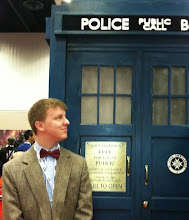Leo Tolstoy is remembered now as an acclaimed author, but during his day he was a full-blown celebrity. There were literally cameramen perched outside his estate at any given moment. (John Irving and Ian McEwan don’t get that sort of coverage today…) Everyone wanted to know what Tolstoy was saying at every given moment. In the movie, Tolstoy (Christopher Plummer) had a best friend under house arrest named Vladimir Chertkov (Paul Giamatti.) Chertkov was fearful of Tolstoy’s wife’s influence. So he hires Valentin Bulgakov (James McAvoy) to be Tolstoy’s personal secretary but also to record all of the interactions going on inside the house.

During this time there is a movement brewing. From his work and sayings, people are trying to be Tolstoyan. This is a humanistic movement to attempt to be morally and socially perfect, I believe. Two of the major elements of this philosophy are the principles of not having private property or sexual relations. That’s where the conflict of this tale comes in. Always with love as the motivation, people are wanting to have both of those things. The Countess (Helen Mirren) is worried that her husband is drifting too far away and will give up his copyrights to the public. Valentin is developing an affair with one of the housemaids. Everyone has strong affection towards respected others, but that affection creates contradictions.
The real main character of this tale is Valentin. This world is seen through his fresh and naive eyes. It is always humorous to see him interact with his idol, but I just wish there were more of them. There are many hints about Tolstoy’s opposition to his own movement, but he is still going through with it. This was a really fascinating component, but briefly touched upon. The main focus really is between the Countess and Tolstoy. Mirren plays the role with deliberate strides. There is no such thing as perfection so Mirren highlights the best and the worst in the character. She can convincingly break plates (a pre-requisite for any Oscar nomination) but can also be compelling in just listening to what’s going on around her. Despite her manic and often destructive personality, she is able to show why she is the perfect match for Tolstoy.

The parallel story of young love is just as effective. This sort of story is often misconstrued. There has to be a love there beyond just the first love in order for the audience to be invested. Instead of just focusing on Valentine’s sexual awakening, the film does a good job establishing their connection as people and not just lovers. Their banter as they chop wood (Not an innuendo) is one of the highlights of the film.
The film has a strong focus and that is why it succeeds over other period pieces and biopics. This isn’t the definitive story of Leo Tolstoy or the Duchess, but a new story about love. Love towards lovers; love towards friends; love towards humanity; love towards symbols. It’s a powerful emotion that makes for some good cinema.
http://blog.movieset.com/movie-reviews/ticket-stubs-the-last-station


No comments:
Post a Comment